JACKSONVILLE, Fla. — WARNING: This story contains graphic content
Samantha grabs a Styrofoam cup with “Sammy’s Coffee” scrawled on the side and takes a sip from a straw.
“This is my new drug,” she says with a grin.
Two years clean, Samantha admits to years of drug abuse and bad behavior under the influence. But on the afternoon of Jan. 31, 2017, she wasn’t the only one behaving badly.
“It was the day the picture of my tutu got taken,” she says.
Samantha was contacted by Jacksonville Sheriff’s Office’s Integrity Unit in early 2017 after police found a picture of her vagina on the phone of an undercover narcotics detective.
It wasn’t the only picture of women’s genitals police found on his phone.
She wasn’t even the only woman photographed that day.
The discovery of the pictures kicked off a months-long corruption investigation by local prosecutors and the Jacksonville Sheriff’s Office peeling back the curtain on an area of police work typically shrouded in secrecy. The probe revealed allegations of shocking and illegal behavior, including illicit drug use and sexual activity, as well as a “probable cause” determination that laws were broken.
First Coast News reviewed hundreds of pages of investigations and hours of police interrogations of paid informants and undercover officers. We also tracked down the women whose photos sparked two different Jacksonville Sheriff’s Office Integrity investigations.
The takeaway may be less a criticism of individual officers that the bald reality of undercover work, summed up by one of the officers:
“What do they expect?”

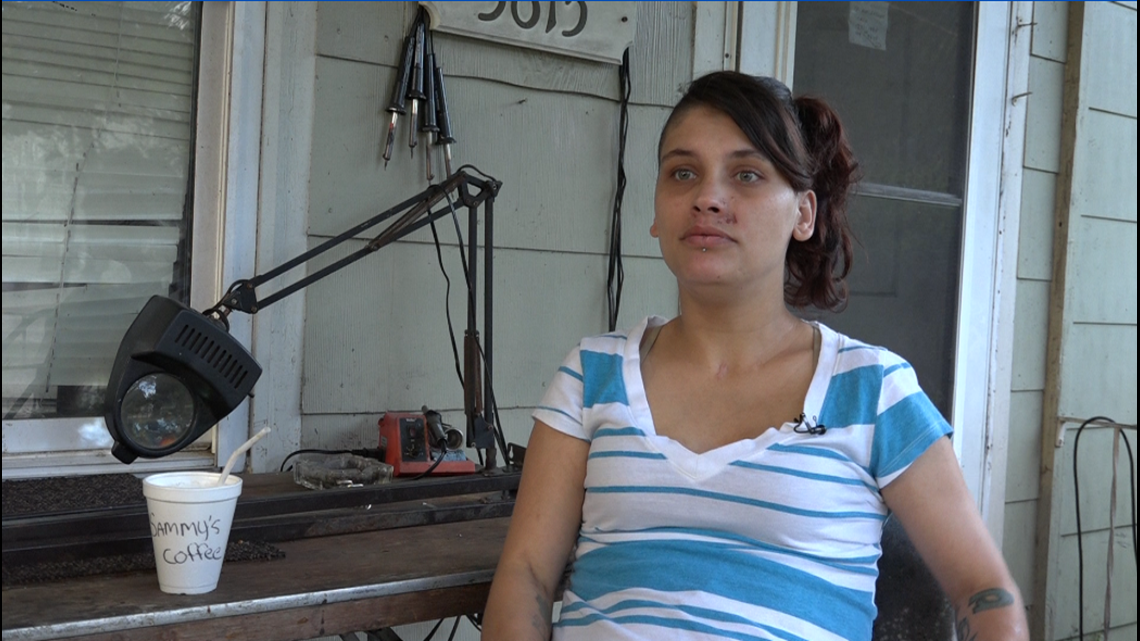
*****
The definition of “vice” is moral weakness or bad behavior. Think: prostitutes, drug dealers.
It’s the job of vice and undercover narcotics officers to catch them.
It’s also their job to mimic them.
The best undercover officers find camouflage in a criminal landscape, indistinguishable from the people they hope to arrest.
“You have to be like them. You have to act like them,” says First Coast News crime analyst Mark Baughman, a former DEA agent who worked narcotics and vice most of his career. “You’re living a lie from day one, once you become an undercover officer.”
Former JSO narcotics detective Kim Varner agrees. He bought drugs for the city for 18 years, and says the best narcotics agents are convincing for a reason: “They’re either from the ‘hood or they got some hood in them.”
First Coast News asked to interview Sheriff Mike Williams and the officers who run JSO’s undercover narcotics unit. At their request, we sent specific questions, including:
- Is the sheriff confident the boundaries for undercover conduct are clearly defined?
- Does the role playing required of narcotics officers lend itself to crossing lines?
- Is the city seeing significant crime reduction from the time and expense required by street level drug busts?
“After further consideration,” JSO responded in an email, “Sheriff Williams has declined the invitation to interview.”

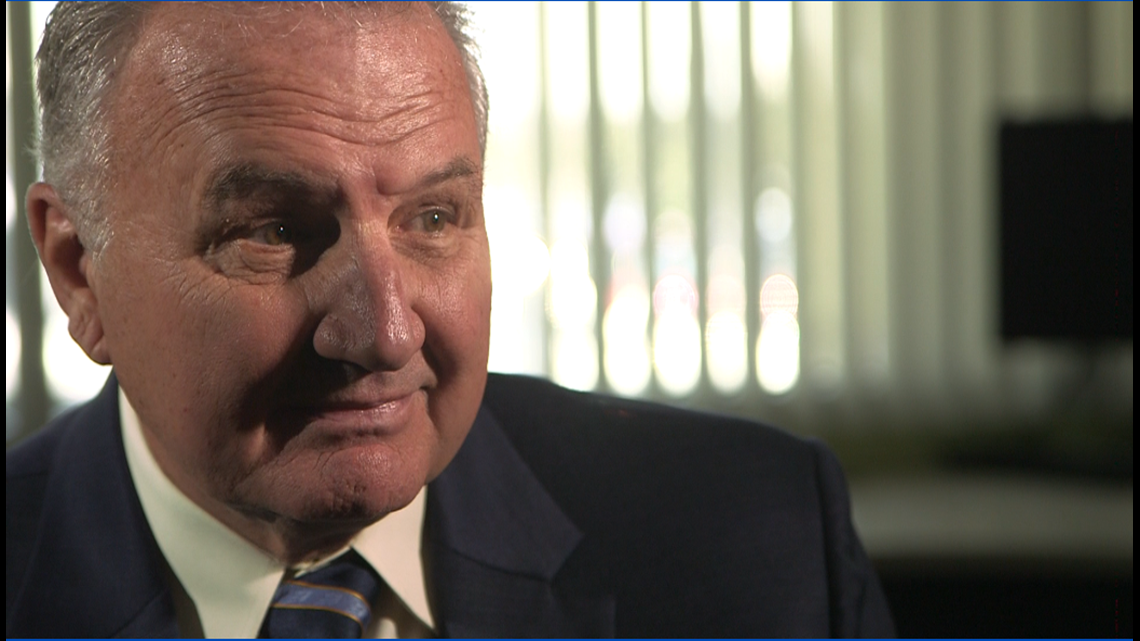
*****
“This may be a little uncomfortable for you to see, but I need to show it to you,” said Jacksonville Integrity Detective officer Patrick Bodine, firing up his laptop. The day was Feb. 23, 2017, and the woman in his car was a prostitute.
“You’re freaking me out, man,” she blurted. “Just show me.”
He did.
“Oh God, no,” she said.
The woman, who asked First Coast News not to use her real name, said she’d been picked up by two men near Edgewood and Lennox Avenues. She didn’t know they were police, but when they asked her to score some cocaine for them, she asked to see their “junk” -- a common way prostitutes attempt ferret out undercover officers.
The woman says the men showed their penises – something both men flatly deny – and then asked her to reciprocate -- something nobody disputes.
Of course, there’s photographic evidence.
The pictures of the woman’s genitals were taken with the iPhone’s “live” photo function, so they capture snippets of audio as one officer instructs her to “spread it... Spread it up for us.”
“Oh my god,” the other officer is heard saying. “Come on finger it a little bit for me. Damn that’s a pretty p***y.”
After being shown the pictures of herself on Detective Bodine’s computer, the woman asks, ‘So, is this like on a cop website now?”
No, he assured her, just “in this car.”
In fact, the pictures had been texted to at least two sergeants in JSO’s Narcotics unit, one of whom responded with a text of his own. According to investigators with the State Attorney’s Office, he asked “what side of town” the woman was on “and indicated that he might go buy from her as well.”
After speaking to Bodine, and later, investigators with the State Attorney’s Office, the woman tells First Coast News she assumed her identity would be protected. It wasn’t. Although her name is redacted by the State Attorney’s Office in their documents, the reports First Coast News received from JSO include the names of both women whose genitals were photographed. In one case, it also included a date of birth, phone number and address.
Because the officers worked undercover, their names are redacted.

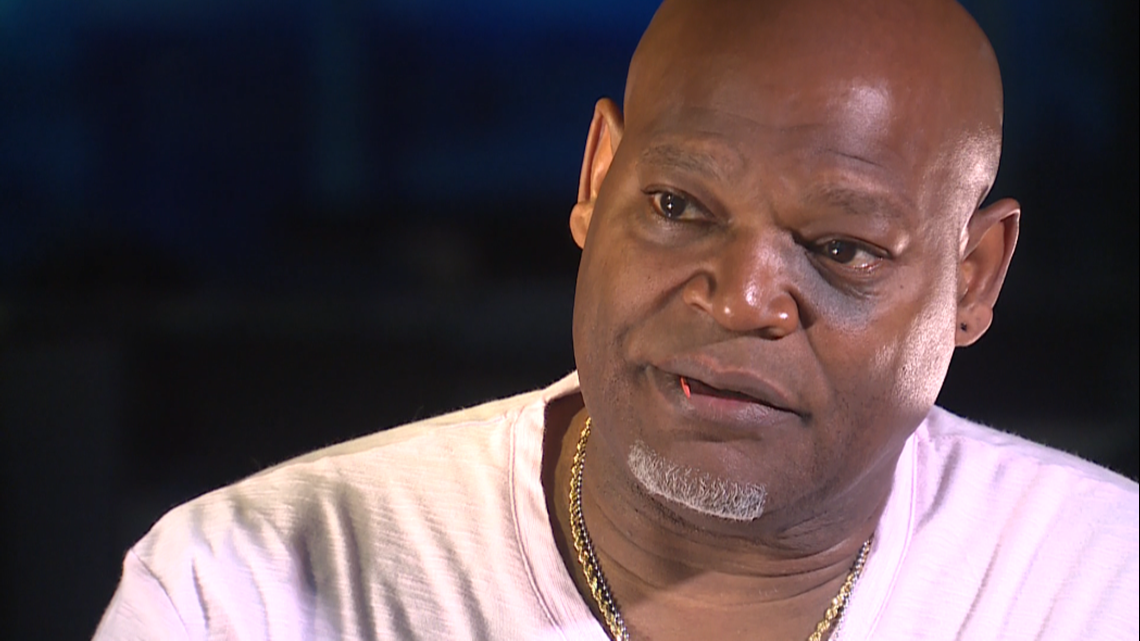
*****
The discovery of the pictures was prompted by an officer-involved shooting in 2017. After the shooting, then-Narcotics Detective Bryan Turner and two other undercover officers threw away beer cans they’d used as props. They were accused of destroying evidence from a crime scene.
Turner’s phone was searched as part of that inquiry. When investigators found the explicit photos and learned they had been forwarded to other officers, they seized of every narcotics officer’s cell phone – all 32, according to Integrity investigation documents. A search by the Florida Department of Law Enforcement turned up another photograph taken by a different undercover duo, also recorded with the phone’s “Live” function, instructing a woman to touch herself. (First Coast News is not identifying the second team since they continue to work in an undercover capacity.)
When Integrity detectives asked the woman about the picture, she barely remembered it being taken. But police records show her interview took a surprising turn.
“They ever give you money for helping them out?” a detective asked.
“They gave me money. They gave me heroin.”
"They gave you money?” the detective clarifies.
“They gave me money and heroin,” she repeats.
That claim led to a second phase of the investigation, in which six unrelated women said undercover officers either gave drugs to them – or did drugs with them.
“They never specifically said ‘Here is dope instead of cash,’” a paid confidential informant told investigators. “But it got to the point where I was clearly not giving them what I was supposed to be giving them -- because they never said anything.”
The second undercover team denied it.
“Absolutely not,” the officer who took the photo told Integrity detectives. “If she did ask for heroin? It would have been ‘No.’”
The officer suggested the woman’s memory was unreliable and recalled an encounter in which she said she’d been up for four days injecting crystal meth and heroin.
“Her recollection?” he said to the detective. “You tell me.”
The detective replied, “I agree.”

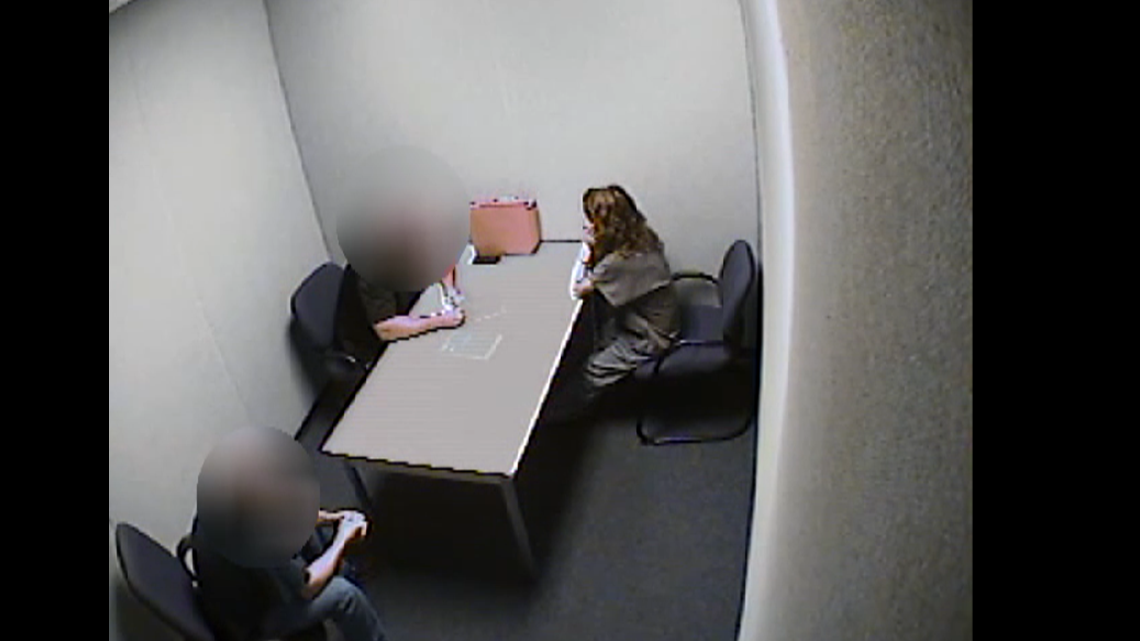
*****
A lot of people doubt the word of drug addicts. Of the six women interviewed by JSO, only one was asked to give a sworn statement to the State Attorney’s Office. The others weren’t interviewed “due to lack of supporting evidence (i.e. pictures) to support allegations they might make.”
But in an interview with First Coast News, Samantha insisted her memory was reliable.
“He would smoke a piece of crack and give me back the pipe, and I’d smoke a piece of crack and give him back the pipe, and it would go like that,” she said of the officer, whom she only knew as “Nate.”
Asked if her memory was drug-addled, she said the fact drugs were involved only made her pay “more attention.”
“If I’m doing drugs and you’re doing drugs, and them are our drugs -- of course I’m going to watch you more, because I want to know what the f**k’s going on with my sh*t.”
Turner’s undercover partner Mike McIntosh told State Attorney Mac Heavener he didn’t see drugs changing hands but couldn’t swear it didn’t happen.
“You’re not able to definitely say that Detective Turner did not break off a piece and give it to her?” Heavener asked.
“No sir,” McIntosh replied.
“It’s possible it did happen, and possible it didn’t happen?” Heavener pressed.
“Yes,” McIntosh replied. (First Coast News attempted to reach McIntosh through JSO without success.)
Bryan Turner declined to speak to investigators and ultimately resigned. But in an interview with First Coast News, he emphatically denied ever using drugs. He noted that even his street persona was drug-free. His story was that he needed to buy drugs for his girlfriend.
“If they had any suspect that I was using drugs, I would have been drug tested immediately,” Turner says. “I think they knew I would drug-test clean.”
While he denies using drugs, Turner says that when undercover officers conduct drug buys, their go-betweens always take some of the product – and everybody knows it.
“They are your drugs that you buy -- minus what they take from you,” Turner says. “It’s not just sometimes -- it’s all the time that happens.”
It’s against JSO policy and the law for officers to distribute narcotics.
The State Attorney’s Office found probable cause to charge both Turner and Mcintosh with soliciting for lewdness, and to charge Turner with distribution of narcotics. But no charges were filed. McIntosh was given immunity for talking to investigators and suspended for 30 days. Turner surrendered his law enforcement certificate and resigned. No charges were brought against the second undercover team.

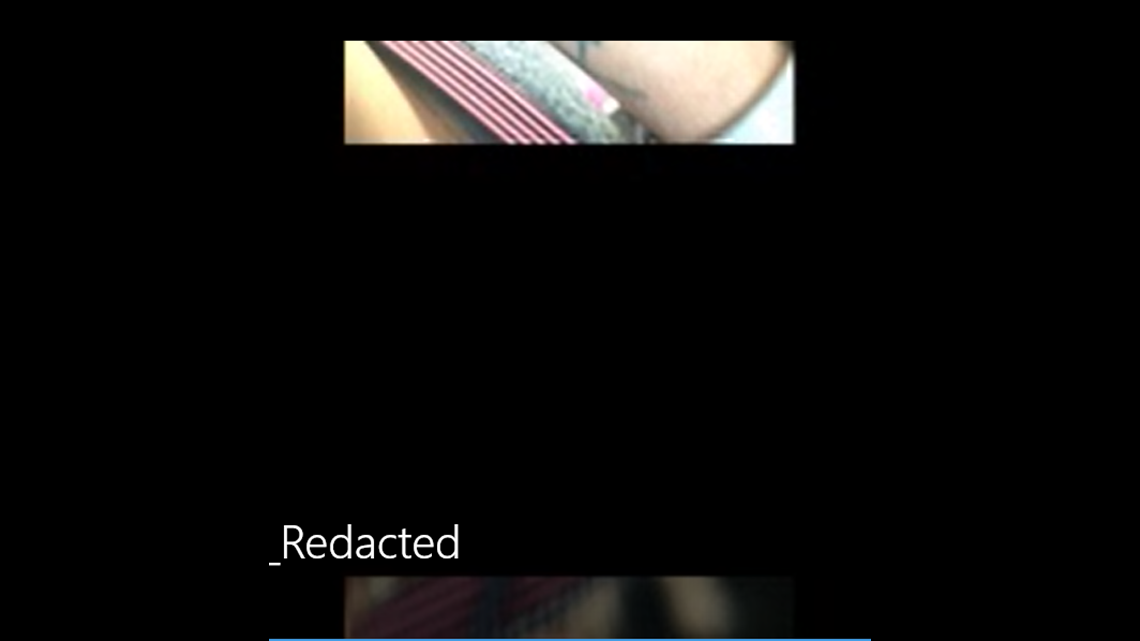
*****
“You have to be a dirtbag.”
Bryan Turner makes zero excuses for his behavior as an undercover officer. In fact, he says his seedy street persona is what made him successful.
“A lot of people used to say I could buy dope from the Pope,” he says.
Turner worked for JSO for nine years, and did undercover drug work for other agencies, including the Nassau County Sheriff’s Office. He has since sued the sheriffs of both agencies over the investigation that led to his departure, but for most of his career he says, “I really enjoyed doing it -- and I was good at it.”
Turner ultimately resigned to avoid the threat of prosecution in the beer can case, and permanently surrendered his law enforcement certificate. But he maintains nothing he did in that case – or any other – was objectionable.
“I think it’s ridiculous,” he says of photo controversy. He notes he texted the pictures to two supervisors the day he took them. “If it was a big deal, why wasn’t something said then?” As for the two officers who took a similar picture, he observes, “nothing was done to them.”
“This is not the same job as being a police officer with a uniform on," he says of undercover narcotics work. "It’s a completely different set of rules.”
Varner, who now trains undercover officers, agrees. He makes no excuses for illegal behavior, but also doesn’t second guess what happens in the field. “I never Monday morning quarterback those guys unless they are doing something really stupid,” he says.
Baughman cautions that role playing can be both a disguise and a trap.
“You are dealing with people on the underbelly of this city. [Undercover officers] walk that line. They have a criminal nature to them. It’s a fine balance," he said.
Varner says taking pictures of suspects is routine, both to identify them for a later arrest or just to play along. He recalls making a drug buy outside a house when a woman approached his car, lifted her skirt and began twerking. He says he took several pictures in an effort to play a role.
“It might look rough, it might look shady,” he says. “But it can be a life or death situation, and you have to act out your role.”
Detective McIntosh echoed that when speaking to investigators. “For me, speaking for me, I thought that I was just playing along. That’s the position we’re put into as narcotics detectives: We’re playing a character role,” he said. “How do they expect us to act?”
It’s something Samantha says she’s thought about – and sort of agrees with.
“I kind of forgive them a little bit for the way they talk. They gotta play that role if they are really deep undercover, which is fine. But don’t put me in jail for something they did.”

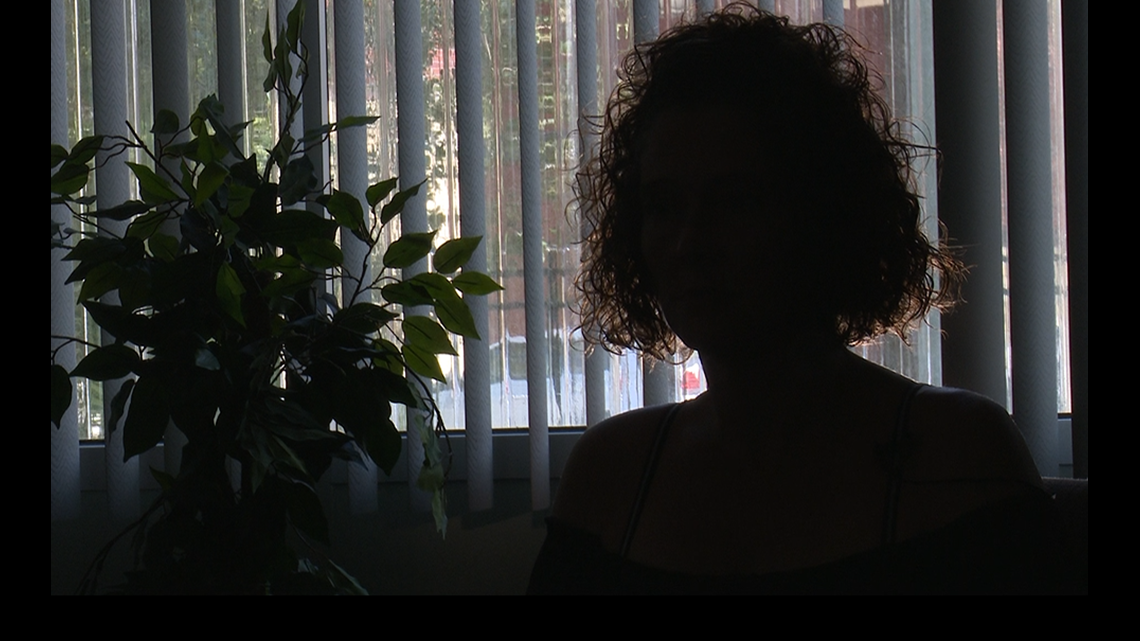
*****
Following the three investigations that stemmed from the 2017 officer-involved shooting, the Jacksonville Sheriff's Office changed or updated several policies. Undercover officers are now prohibited from taking or sharing nude photographs unless they serve a specific investigative purpose. They are also not allowed to possess or consume alcohol except when it is necessary to “maintain credibility” in an undercover situation. If an officer must drive after drinking, they have to inform a superior officer immediately.
Using drugs or allowing informants to keep some of the drugs they buy remains against JSO policy.

